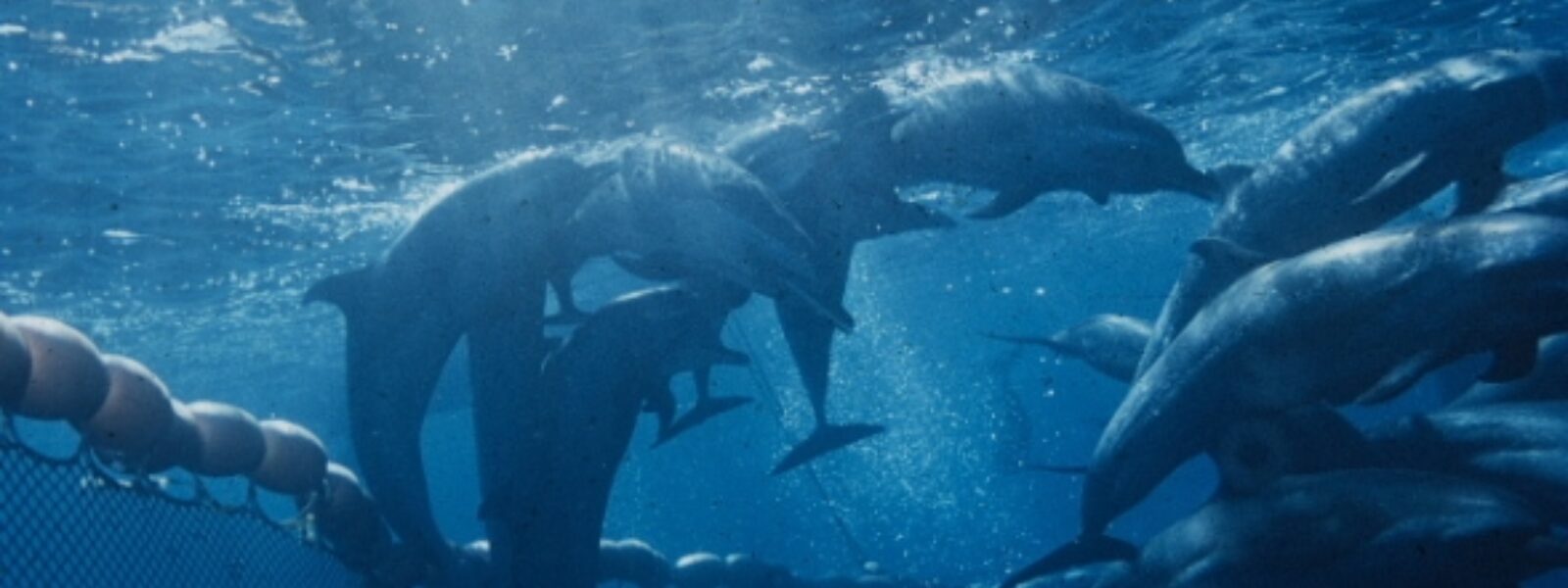

In 2008, the government of Mexico brought the issue of the Dolphin Safe tuna label standards to the World Trade Organization, filing a formal case against the United States. The US standards for use of the Dolphin Safe label require that the tuna vessel not encircle any dolphins with nets during the entire trip in which the tuna was caught.
Mexico’s tuna industry, the largest dolphin killing fleet left in the world, refused, claiming these standards “discriminated” against Mexican tuna caught by chasing, harassing, netting and killing thousands of dolphins annually. (Mexico claims falsely that they harm very few dolphins – in fact extensive scientific research by the US National Marine Fisheries Service proves they are quite wrong.)
The World Trade Organization, after several negative rulings against the US strong standards for the Dolphin Safe tuna label in the past, has at last agreed that the US is in compliance with WTO Free Trade regulations. Environmental groups, including the International Marine Mammal Project (IMMP) of Earth Island Institute, are celebrating.
As the organization that established the popular Dolphin Safe label in 1990, IMMP is very pleased with this decision.
Governments and tuna industries such as Mexico should reconsider their actions of sanctioning the chasing, netting and killing of thousands of dolphins and adopt the US standards of no setting of nets on dolphins to catch tuna.
Mexico should drop this 10-year-old case against the US and dolphins. More than 7 million dolphins have died through chasing and netting dolphins to catch the tuna that swim beneath. This fishing technique should have been retired long ago. More than 95% of the world’s tuna industry has pledged to fish Dolphin Safe by the US standards. IMMP maintains monitors around the world to see that tuna companies are complying with the Dolphin Safe standards for canned tuna.
A key part of this successful outcome is the US Office of the Trade Representative (USTR) and the US National Marine Fisheries Service (NMFS) chose not to change the strong US standards for the Dolphin Safe label, but rather issued new regulations to ensure that all countries engaged in tuna fishing provided the same level of verification and tuna tracking that were required of Mexico, so that instead of discriminating against Mexico, the case became whether Mexico should get the special privilege of lying to consumers that their tuna, stained by the blood of dolphins, was somehow falsely labeled “Dolphin Safe.” The WTO panel, in this latest decision, agreed that the US had complied with the provisions of the WTO against trade discrimination. And the US Dolphin Safe label remains intact and strong.
Our thanks to the lawyers, biologists and staff of the USTR and the NMFS for their ultimately successful efforts in support of the Dolphin Safe tuna label.
For more information on Dolphin Safe tuna and a list of companies that comply with the strong “no-encirclement of dolphins” standards of the Dolphin Safe label, see here.